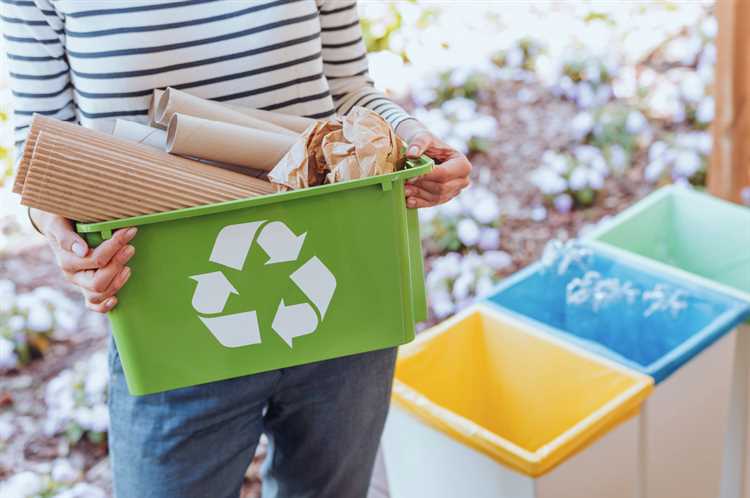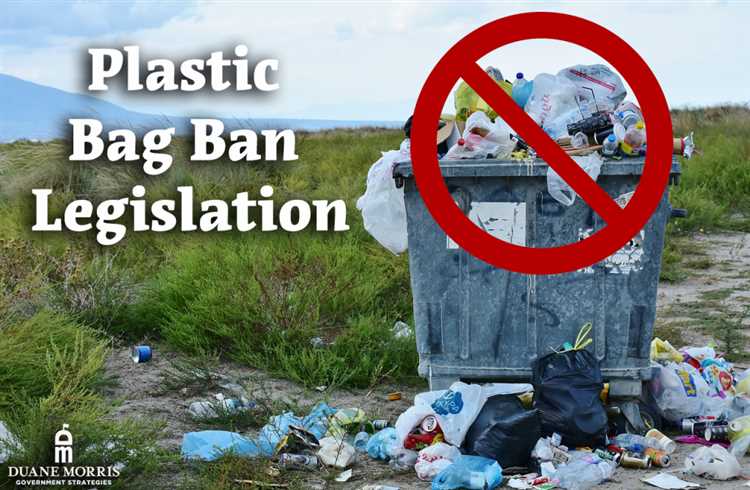
Plastic bags have become an integral part of our daily lives. They are convenient, lightweight, and cheap to produce, making them a popular choice for both retailers and consumers. However, their convenience comes at a high cost to the environment. The government is now taking action to address the detrimental impact of plastic bags on our planet.
Plastic bags are a significant source of pollution, especially in terms of marine litter. They are often improperly disposed of and end up in our oceans, where they pose a grave threat to marine life. Sea turtles, birds, and other marine animals mistake these bags for food and often choke or suffer from internal injuries as a result. The government recognizes the urgency of this issue and is implementing measures to reduce plastic bag consumption.
It is estimated that millions of plastic bags are used every minute worldwide, and the majority of them end up in landfills. These bags take hundreds of years to decompose, and during this time, they release harmful chemicals into the soil and water. This not only contaminates our natural resources but also affects the health of plants, animals, and humans. In response to this environmental crisis, the government is implementing policies to encourage the use of eco-friendly alternatives and promote recycling.
- The Problem with Plastic Bags: Pollution and Waste
- Pollution
- Waste
- Plastic Bags and Marine Life: A Deadly Combination
- The Long-lasting Effects of Plastic Bags on Land
- Persistent Pollution
- Threat to Wildlife
- Environmental Damage
- Health Concerns: Plastic Bags and Human Well-being
- Chemical Exposure
- Air Pollution
- Government Initiatives to Reduce Plastic Bag Use
- 1. Plastic Bag Taxes
- 2. Plastic Bag Bans
- Alternatives to Plastic Bags: A Sustainable Solution
- Q&A:
- What is the environmental impact of plastic bags?
- Why is the government taking action to address the issue of plastic bags?
- Are there any alternatives to plastic bags?
- What can individuals do to reduce their use of plastic bags?
- How effective have government actions been in reducing plastic bag usage?
The Problem with Plastic Bags: Pollution and Waste
Plastic bags have become a ubiquitous part of our daily lives, with millions being used and discarded every day. However, the convenience of plastic bags comes with a significant environmental cost. The production, use, and disposal of plastic bags contribute to pollution and waste in several ways.
Pollution
Plastic bags are a major source of pollution, particularly in aquatic environments. When plastic bags end up in rivers, lakes, or oceans, they can pose a serious threat to marine life. Marine animals often mistake plastic bags for food, leading to ingestion and possible death. Additionally, the breakdown of plastic bags in water can release harmful chemicals and microplastics, which further pollute the water and harm marine ecosystems.
Air pollution is also a concern associated with plastic bags. The production of plastic bags requires the extraction and refining of fossil fuels, which releases greenhouse gases and other pollutants into the atmosphere. Moreover, when plastic bags are incinerated, they release toxic fumes and contribute to air pollution.
Waste
Plastic bags are notorious for their long lifespan. It can take hundreds of years for a single plastic bag to decompose in a landfill. As a result, landfills become overwhelmed with plastic waste, taking up valuable space and releasing harmful substances into the soil and groundwater.
Even when plastic bags are recycled, the process is not perfect. Many recycling facilities are not equipped to handle plastic bags effectively, leading to limited recycling options. This means that a large portion of plastic bags still ends up in landfills or as litter in the environment.
Furthermore, the production of plastic bags requires significant amounts of energy and resources, contributing to the depletion of natural resources and the release of greenhouse gases. This unsustainable use of resources further exacerbates the waste problem associated with plastic bags.
In conclusion, plastic bags contribute to pollution and waste in various ways. Their impact on the environment is significant and cannot be ignored. It is crucial that we reduce our reliance on plastic bags and adopt more sustainable alternatives to protect our planet and its ecosystems.
Plastic Bags and Marine Life: A Deadly Combination
Plastic bags have become a major threat to marine life in our oceans and waterways. These lightweight and durable bags are often mistaken for food by marine animals, leading to severe consequences for their health and wellbeing.
When marine animals ingest plastic bags, it can cause digestive blockages and stomach ulcers, leading to malnutrition, starvation, and eventually death. The plastic bags can also entangle marine animals, causing injuries and impairing their ability to swim, hunt, and reproduce.
In addition to directly harming marine life, plastic bags also have a negative impact on the marine ecosystem as a whole. As plastic bags break down into smaller pieces over time, they release toxic chemicals into the water, polluting the environment and endangering the lives of various marine species.
Furthermore, plastic bags contribute to the larger problem of plastic pollution in our oceans. Plastic debris, including bags, make up a significant portion of the marine litter that accumulates on beaches and shorelines. This not only poses a visual pollution problem, but it also affects the health of marine ecosystems and the animals that depend on them.
Recognizing the devastating impact of plastic bags on marine life, governments around the world are taking action to reduce their use and implement measures to promote more sustainable alternatives. By implementing bans or fees on plastic bags, governments aim to encourage consumers to switch to reusable bags and reduce their reliance on single-use plastics.
- Raising awareness about the environmental impact of plastic bags on marine life is crucial in order to promote behavior change and encourage individuals to make more sustainable choices.
- Supporting initiatives that promote the use of eco-friendly alternatives to plastic bags, such as cloth or paper bags, can help reduce the demand for plastic bags and protect marine ecosystems.
- Implementing effective waste management systems, including recycling programs, can help prevent plastic bags from ending up in our oceans and reduce the overall amount of plastic waste generated.
By addressing the issue of plastic bags and marine life, we can create a healthier and more sustainable environment for both marine creatures and humans. It is crucial that we recognize the urgency of this issue and take the necessary steps to protect our oceans for future generations.
The Long-lasting Effects of Plastic Bags on Land
Plastic bags have become a ubiquitous part of our daily lives, but their impact on the environment, particularly on land, is cause for concern. When plastic bags are discarded on land, they can have long-lasting effects that harm both wildlife and ecosystems.
Persistent Pollution

Plastic bags are not biodegradable, meaning they do not break down naturally over time. Instead, they persist in the environment for hundreds of years, slowly breaking down into smaller pieces known as microplastics. These microplastics contaminate the soil, making it difficult for plants to grow and disrupting the delicate balance of ecosystems.
Threat to Wildlife
Plastic bags are often mistaken for food by animals, leading to severe consequences for their health and well-being. Land animals, such as cows and horses, can accidentally ingest plastic bags while grazing, causing blockages in their digestive systems that can be fatal. Moreover, birds commonly mistake plastic bags for prey and can die from choking or starvation after ingesting them.
The presence of plastic bags on land also poses a significant threat to marine life. When plastic bags end up in rivers and eventually make their way to the ocean, marine animals, such as sea turtles and seals, can mistake them for jellyfish or other food sources. This can result in entanglement, suffocation, or internal injuries, ultimately leading to their death.
Environmental Damage
The production of plastic bags requires the extraction of fossil fuels and the emission of greenhouse gases, contributing to climate change and air pollution. Additionally, the disposal of plastic bags in landfills releases toxic chemicals that can contaminate groundwater and nearby ecosystems. These harmful substances can enter the food chain and have long-term effects on both human and animal health.
Overall, the long-lasting effects of plastic bags on land are significant and wide-ranging. It is crucial that we take action to reduce our reliance on single-use plastics and find sustainable alternatives to protect our environment for future generations.
Health Concerns: Plastic Bags and Human Well-being
Plastic bags have become a ubiquitous part of modern life, but the impact they can have on human well-being is cause for concern. Here are some health concerns associated with plastic bags:
Chemical Exposure
Plastic bags are made from polyethylene, a synthetic polymer that can leach harmful chemicals into the environment. When exposed to heat or sunlight, plastic bags can release toxins such as bisphenol A (BPA) and phthalates, which have been linked to hormone disruption, developmental issues, and increased risk of certain cancers.
Air Pollution

Plastic bags contribute to air pollution through the release of greenhouse gases during their production and disposal. The manufacturing process of plastic bag production involves burning fossil fuels, which releases carbon dioxide and contributes to global warming. Additionally, when plastic bags end up in landfills, they can release methane, a potent greenhouse gas that contributes to climate change.
Furthermore, plastic bags can degrade into smaller microplastics that can be inhaled, leading to respiratory issues and exacerbating conditions such as asthma and allergies.
It is important for individuals to reduce their use of plastic bags and opt for more sustainable alternatives to protect their health and the well-being of future generations.
Government Initiatives to Reduce Plastic Bag Use
The impact of plastic bags on the environment has become a pressing concern for governments around the world. In response to this issue, many governments have introduced initiatives to reduce plastic bag use, aiming to minimize the negative effects these bags have on ecosystems and waste management systems. Here are some notable government initiatives that have been implemented:
1. Plastic Bag Taxes
One approach employed by governments is the implementation of plastic bag taxes. These taxes are designed to discourage consumers from using plastic bags by making them more expensive. The revenue generated from these taxes is often allocated towards environmental initiatives or waste management programs. Countries like Ireland and Germany were among the first to introduce plastic bag taxes, and since then, many others have followed suit.
2. Plastic Bag Bans

Several governments have gone a step further and completely banned the use of plastic bags. This approach is aimed at eliminating plastic bag use altogether and encouraging consumers to switch to reusable alternatives. Countries such as Rwanda, Kenya, and Bangladesh have implemented successful plastic bag bans, leading to significant reductions in plastic bag pollution.
3. Promoting Reusable Alternatives
In addition to taxes and bans, governments are actively promoting the use of reusable bags as alternatives to single-use plastic bags. This includes initiatives such as providing subsidies for reusable bag manufacturers, distributing free reusable bags to consumers, and implementing educational campaigns to raise awareness about the benefits of using reusable options.
4. Partnering with Retailers
Many governments have formed partnerships with retailers and supermarkets to reduce plastic bag use. This collaboration often involves making commitments to reduce the distribution of single-use plastic bags, offering incentives for customers who bring their own bags, and encouraging the use of biodegradable or compostable bags instead.
5. Investing in Recycling Infrastructure
Some governments are investing in the development of recycling infrastructure to better manage plastic bag waste. This includes establishing recycling facilities, improving waste collection systems, and implementing programs to promote recycling awareness among citizens. By enhancing the recycling infrastructure, governments aim to reduce the environmental impact of plastic bags and encourage the proper disposal or recycling of these items.
It is clear that governments are taking action to address the environmental consequences of plastic bag use. Through the implementation of taxes, bans, promotion of reusable alternatives, partnership with retailers, and investment in recycling infrastructure, governments are making significant strides towards reducing plastic bag pollution and creating a more sustainable future.
Alternatives to Plastic Bags: A Sustainable Solution
Plastic bags have long been a convenient and popular choice for carrying groceries and other items. However, their environmental impact has sparked a global movement to find sustainable alternatives. There are several options available that not only reduce waste but also promote a more eco-friendly lifestyle.
| Paper Bags |
One of the most readily available alternatives to plastic bags is paper bags. Made from renewable resources such as trees, paper bags are biodegradable and can be recycled. They have a lower carbon footprint compared to plastic bags and can be reused multiple times. However, paper bags may not be as durable as plastic bags and are more prone to tearing, especially when wet. |
| Cloth Bags |
Cloth bags, also known as reusable or tote bags, are becoming increasingly popular as an alternative to plastic bags. Made from materials such as cotton or canvas, cloth bags are durable and can be used for a long time. They are washable and versatile, suitable for carrying groceries, books, or other heavy items. Cloth bags are not only eco-friendly but also stylish, with many designs and patterns available. |
| Biodegradable Bags |
Another sustainable alternative to plastic bags is the use of biodegradable bags. These bags are made from materials that break down naturally over time, such as plant fibers or starch-based plastics. Unlike traditional plastic bags, biodegradable bags do not contribute to pollution and have a much shorter decomposition period. However, it is crucial to ensure that these bags are disposed of correctly in composting facilities to maximize their environmental benefit. |
| Reusable Containers |
In addition to bags, reusable containers are another sustainable solution for reducing the use of plastic bags. Containers made of materials like glass or stainless steel can be used to carry food or other items instead of relying on single-use plastic bags. They are durable, easy to clean, and can be used repeatedly, significantly reducing waste. Reusable containers are particularly suitable for takeaway meals, snacks, or bulk grocery shopping. |
By opting for these alternatives to plastic bags, individuals can play a part in preserving the environment and reducing plastic waste. Governments and organizations should promote the use of sustainable alternatives by providing incentives and encouraging behavioral changes. Together, we can create a more sustainable future without the harmful impact of plastic bags.
Q&A:
What is the environmental impact of plastic bags?
The environmental impact of plastic bags is significant. They are not biodegradable and can take hundreds of years to break down. This leads to a buildup of plastic waste in landfills, oceans, and rivers, which harms wildlife and ecosystems.
Why is the government taking action to address the issue of plastic bags?
The government is taking action because plastic bags have a severe negative impact on the environment. They contribute to pollution, harm wildlife, and clog up landfills. By implementing measures like bans or taxes on plastic bags, the government aims to reduce their use and encourage more sustainable alternatives.
Are there any alternatives to plastic bags?
Yes, there are alternatives to plastic bags. Some common alternatives include reusable cloth bags, paper bags, and biodegradable bags made from materials like cornstarch. These alternatives are more environmentally friendly because they break down more easily and can be reused multiple times.
What can individuals do to reduce their use of plastic bags?
Individuals can take several steps to reduce their use of plastic bags. These include bringing their own reusable bags when shopping, opting for paper bags if available, and saying no to plastic bags when unnecessary. It’s also important to recycle any plastic bags that are used to ensure they don’t end up in the environment.
How effective have government actions been in reducing plastic bag usage?
Government actions have been effective in reducing plastic bag usage in many cases. Countries like Ireland and Denmark have seen significant reductions in plastic bag consumption after implementing bag taxes. However, the effectiveness can vary depending on the specific measures taken and the level of public awareness and support.